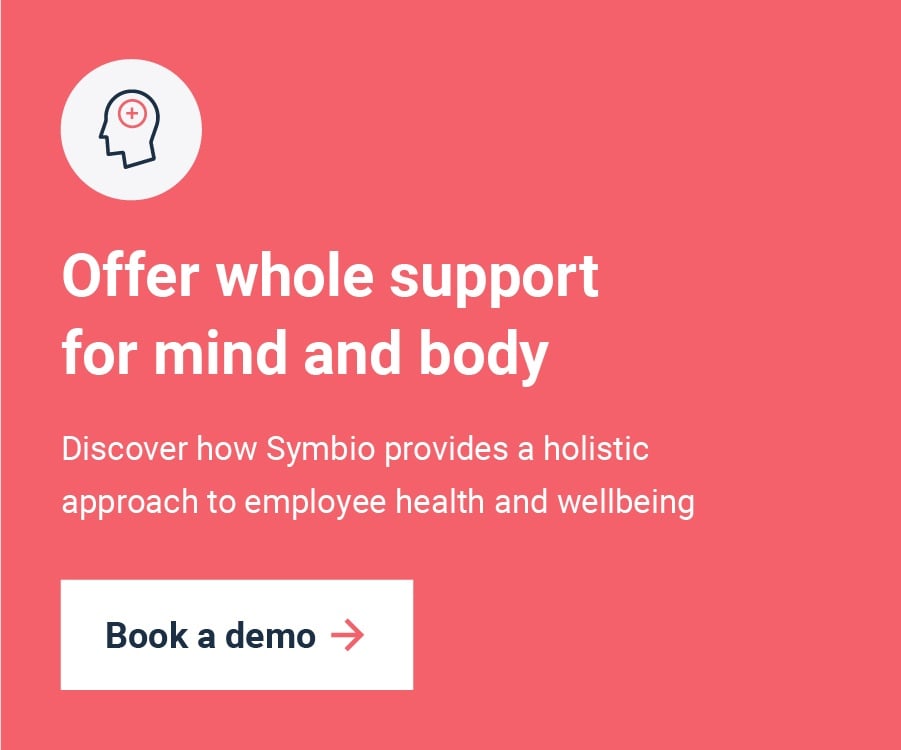Did you know that over 80% of university staff feel that being encouraged to take time off when they’re ill would be effective in managing their wellbeing?
We all want to be team players. But the reality is that, when we’re not feeling well, we’re not performing our best. In both the long and short term, presenteeism is not good for you, or your staff. As when staff suffer, so do the students.
Presenteeism is when a member of staff comes to work despite suffering from illness or another medical condition. They’re at work, but they’re less productive and more prone to making mistakes.
The unhealthy truth about presenteeism
Anxiety, burnout and physical health problems are on the rise amongst university staff, yet, people seem to be taking less sick days than ever before. In fact, ONS statistics show a steady decrease in sick days since 1995 from 7.2 per year to 3.6 in 2020. That’s a significant reduction over a 25-year period.
The reasons for this decrease include improvements in healthy life expectancy, as well as a three-fold increase in presenteeism since 2010.
But, why do nearly 40% of university staff feel like they can't take time off when they’re sick?
Studies suggest that fear of judgement is one of the leading causes of presenteeism. Staff also don’t want to let their team down. Other reasons for presenteeism also include:
- A lack of sick days - If staff can’t take time off, they’ll come in when they shouldn’t.
- Staff shortages - If there aren’t enough people to do the work, staff will feel they can’t stay away.
- Feeling irreplaceable - Key staff may feel like they can’t take time off as they’re the only ones who can do the work.
Change lies within the people of your organisation. They should foster a culture that allows people to take time off when they need it. Not only will it improve employee wellbeing, but it will bring other benefits too.
Here are some reasons why presenteeism is bad for universities
We all know how hard university teams work, but success is too often defined as ‘putting the hours in’. And, although hard work gleans results, there’s more to being successful than simply turning up.
In fact, if you have a culture of presenteeism it can result in tangible negative impacts, not just for staff, but for students too.
Here are four reasons why you should try to prevent presenteeism and ensure your staff are the very best they can be.
1. It reduces university productivity
According to a recent study conducted during the pandemic, ‘working on a day when you feel ill drains mental energy which cannot be recovered the next day’, even when working from home.
When staff work while ill, there’s a knock-on effect over time. This could severely impact productivity.
2. It increases the number of mistakes made
Working while sick leads to disengagement. And disengaged staff are more likely to make mistakes. So, in addition to a reduction in productivity, your sick colleagues can cause 60 percent more mistakes compared to their healthy, engaged counterparts.
3. It spreads sickness around your university
According to research on how viruses spread in offices, 40 to 60 percent of all surfaces were contaminated within two to four hours.
If you allow your staff to come in sick, you risk the wellbeing of the whole university.
4. It increases stress and poor mental health in the staffroom
Presenteeism leads to increases in mental health conditions, such as workplace stress and burnout, both of which are already prevalent within the higher education sector.
It can also lead to poor staff retention. Pandemic fatigue and changing employee needs have driven a wave of resignations, known collectively as the great resignation.
If your university encourages a culture of presenteeism, you may find top talent leaving. After all, there’s only so much stress and burnout staff will take before they start looking for another job.
How to degrade presenteeism
Your commitment to wellbeing will make such a big difference to staff and students, creating a happier work environment for everyone. What's more, you'll get to attract and retain the best talent.
Here are a few tips to help you get started on preventing presenteeism:
- Lead by example - The leadership team always set the tone. If you want staff to feel they can take time off, they should encourage taking sick days when needed.
- Provide healthcare benefits - These can include services like access to a virtual GP, mental health programs and other health benefits.
-
Create an effective health and wellbeing strategy - Focus on care and compassion for your staff. Offer benefits like flexible working, paid sick leave and access to wellbeing services.
If you’re not sure where to begin when it comes to combatting presenteeism, why not check out ‘Symbio’, the new workplace wellbeing app from HealthHero? It looks after staff's mental and physical health, with a range of virtual wellbeing services, from self-help programmes to GP and counselling appointments.






